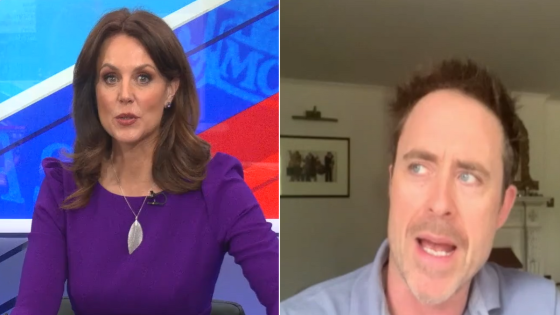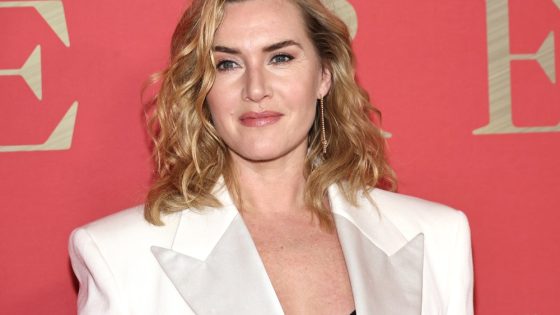Tom Brady was nowhere to be seen as Birmingham City dropped to the third tier of English football. He was, however, in Los Angeles the following day for Netflix’s The Roast of Tom Brady, a live TV special in which Bill Belichick, Kevin Hart and many others ripped into the seven-time Super Bowl winner.
“I see your soccer team got knocked down another tier in the English Football League,” Belichick, Brady’s former coach, said from the dais. “For those not familiar with English football, thanks to the intricacies of their obscure regulations system, I’ll put it in English for you: they suck! Not so easy to run a team, is it Tom?”
Whatever Brady’s shortcomings as a minority owner of Birmingham City, The Roast of Wayne Rooney would probably be more popular at St Andrew’s given the former England striker’s role in the club’s relegation. Blues were sitting sixth in the Championship when manager John Eustace was sacked in October. Under Rooney, though, they plummeted, losing nine out of 15 games. He lasted just 83 days in the job, the club’s season never really recovered and their fate was sealed on the final day of the season.
Few clubs would have hired Rooney in Birmingham’s situation. Eustace had Blues headed in the right direction while Rooney was largely unproven as a manager at Championship level. The shimmer of celebrity, however, proved irresistible for an ownership group that already had stars in its eyes after welcoming in Brady (the club, under different ownership, made a similar mistake in 2016 when they replaced the successful Gary Rowett with Gianfranco Zola, who went on to win just two of his 24 matches in charge).
Related: Should other clubs chase Wrexham’s American success story?
Birmingham City aren’t the only English club with a celebrity owner. In fact, Blues’ relegation came on the same day news broke of Will Ferrell’s investment in Leeds United. The Anchorman star – who was a guest at Brady’s roast – joined Russell Crowe, Michael Phelps, former NBA MVP Russell Westbrook and golfers Jordan Spieth and Justin Thomas as an investor in 49ers Enterprises, the ownership group that invested in Leeds in 2018. Former NFL star JJ Watt is a co-owner of Burnley, who look set to slip out of the Premier League this season. Actor Michael B Jordan has a stake in Bournemouth. Then, of course, there’s Ryan Reynolds and Rob McElhenney who bought Wrexham and turned the Welsh club into the subject of the wildly popular docuseries Welcome to Wrexham, which has just started its third series.
In Wrexham’s case, streaming numbers have accompanied back-to-back promotions, which means they will face Birmingham in League One next season. In other cases, though, glitz and glamour has not brought success. That is certainly true of Blues (in fairness to Brady, his ownership stake is reported to be just 5%, and it’s doubtful he makes day-to-day decisions at the club).
Of course, celebrity ownership isn’t anything new in English football. Sir Elton John was Watford owner for over a decade and achieved great success, taking the club from the fourth tier of English football to the top flight in just five seasons – Reynolds and McElhenney should take note. Delia Smith is still Norwich City’s joint majority shareholder.
Those owners, however, were fans of the clubs they ended up buying. They already had a connection to the local community. Now, soccer clubs are investment opportunities in a global marketplace. To a Hollywood celebrity, a stake in an EFL team is just another part of their portfolio which might also include a tequila company and a sneaker brand.
The number of celebrity owners in English soccer has grown as the sport has woken up to the power of content. When that content is placed at the centre of a broader strategy, celebrity ownership can make sense – there’s an element of PR in Welcome to Wrexham but McElhenney and Reynolds play an active part in running Wrexham, and there’s no doubt the club are better off since they took over. What, however, is Birmingham’s strategy with Brady as an owner, even with a lesser stake than McElhenney and Reynolds? What exactly is he bringing to the table as a passive investor who may or may not show up to sign autographs, kiss babies or buy drinks once or twice a season?
“As Chairman of the Advisory Board, Brady will apply his extensive leadership experience and expertise across several components of the Club, including working alongside the sports science department to advise on health, nutrition, wellness, and recovery systems and programs,” Birmingham wrote in a statement when announcing Brady’s investment.
Is there any evidence of Brady’s wellness expertise on the pitch? Have strawberries been scrapped from the club cafeteria?
While celebrity ownership works well in the US, where sport is generally considered part of the entertainment landscape, it’s a more awkward fit for English soccer. Clubs are so deeply rooted in their communities that the arrival of a new celebrity owner barely registers. Will Leeds sell more tickets now that Ferrell has a stake? Are fans meant to be so starstruck that they spend more money in the club shop? You shudder thinking about the ‘Stay Classy’ half-and-half scarves.
Related: Christian McFarlane: could England gain a US-raised star?
Cynically, it may be that some investment groups get celebrities to buy a stake in their clubs to give the impression of ambition without backing it up in a meaningful way. It is, after all, easier to email a pitch deck to an actor or NFL star than build out a strong front office and scouting network. Had Birmingham City done the latter, they may have stayed in the Championship.
Birmingham’s owners Knighthead Capital Management have made a stronger impression off the pitch than they have on it. The club has plans to build a new stadium and has already bought land for the project. This is on top of the renovation work done on Birmingham’s existing stadium, which was in a state of partial dereliction when the new owners arrived last summer. They’ve also invested in the club’s community charity that was left dormant under the previous ownership, helping underprivileged families in the area whether they’re Birmingham fans or potential supporters in the future.
“The bond that is forming between ownership and fanbase already is massive,” says Chris Goulding of the We Are Birmingham podcast. “Despite once again dropping to the third tier, there are fans of most generations believing this is the most optimistic they’ve ever felt about our future.”
Many fans believe the club is heading in the right direction in the long-term and that Birmingham could be on the same course as Ipswich Town, who went from League One to the Premier League in two seasons. And it’s not as though there’s an expectation Brady’s greatness will make a difference to results.
“The shares really feel like just a token,” Goulding says. “His friendship with Tom Wagner seems more like the reason for his involvement. Whether his sporting prestige can have any meaningful adaptation remains to be seen. I’m not sure he’ll be making too many visits to the club next season when we’re hosting the likes of Cambridge and Exeter, but you have to wonder if the visit of Wrexham might be a celeb-fest.”
Regardless, Knighthead’s legacy will be determined by what happens on the pitch and the New York-based investment fund is undoubtedly off to a bad start. While mistakes have been owned up to – “we made one decision that if we were to go back in time we wouldn’t have made,” said Wagner of the firing of Eustace and hiring of Rooney – they have been made nonetheless. And it’s far from guaranteed that Birmingham will bounce back quickly. League One is a quagmire that big clubs can get stuck in – just ask Portsmouth.
English football is going through a moment. Stars will continue to invest in clubs. Ferrell won’t be the last celebrity to get involved. Boardrooms across the country are starting to resemble the sofas of late-night chat shows – or a Netflix roast, in Birmingham’s case. Not every celebrity-owned club can be a Wrexham, though. The relegation of Brady’s Birmingham highlights that.
Source Agencies



